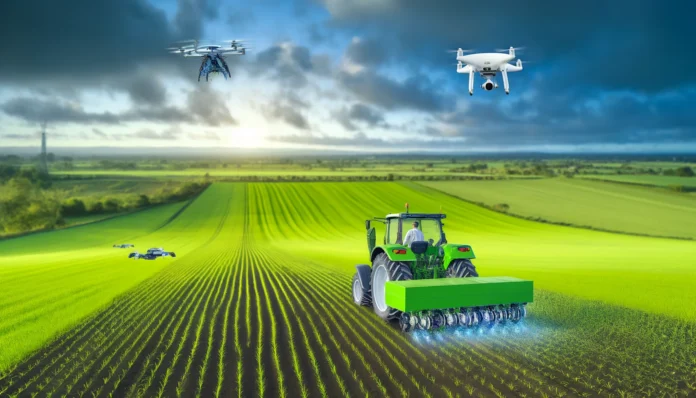In the heartlands of rural landscapes, where the soil meets the sky, a silent revolution is underway. The age-old practice of farming is undergoing a metamorphosis, propelled by the transformative power of artificial intelligence (AI). As we stand at the cusp of a new agricultural era, it’s crucial to understand how AI is reshaping the future of farming and cultivating bountiful harvests.
Picture a vast expanse of farmland stretching as far as the eye can see, where every plant is nurtured with precision and care. This vision is no longer a distant dream but a tangible reality, thanks to AI-driven innovations in agriculture. From sowing seeds to harvesting crops, AI is revolutionizing every aspect of the farming process, ushering in an era of unprecedented efficiency and productivity.
At the heart of AI’s impact on agriculture lies its ability to process and analyze vast amounts of data with unparalleled speed and accuracy. By harnessing the power of machine learning algorithms, farmers can gain valuable insights into soil health, weather patterns, pest infestations, and crop yields. This data-driven approach enables them to make informed decisions in real-time, optimizing resource allocation and maximizing yields.
Moreover, AI-powered agricultural machinery is transforming the way crops are planted, cultivated, and harvested. Autonomous tractors equipped with AI-driven navigation systems can navigate fields with precision, planting seeds and applying fertilizers with unparalleled accuracy. Drones equipped with advanced sensors and cameras can monitor crop health from above, detecting early signs of disease or nutrient deficiencies.
But AI’s impact on agriculture extends beyond the field. In the realm of predictive analytics, AI algorithms can forecast market trends and commodity prices, enabling farmers to make strategic decisions about crop selection and pricing. By leveraging predictive modeling, farmers can mitigate risks and capitalize on emerging opportunities, ensuring the long-term sustainability of their operations.
Furthermore, AI is revolutionizing livestock management, providing farmers with valuable insights into animal health, behavior, and productivity. Wearable sensors and IoT devices can monitor vital signs and activity levels in real-time, enabling early detection of health issues and optimizing feeding regimes. By harnessing AI-driven insights, farmers can enhance animal welfare, improve breeding outcomes, and increase profitability.
However, as we embrace the promise of AI in agriculture, it’s essential to address potential challenges and concerns. Privacy and data security are paramount, as farmers entrust sensitive information to AI-powered systems. Additionally, there are ethical considerations surrounding the use of AI in agriculture, particularly concerning the welfare of farm animals and the impact on rural communities.
In conclusion, the integration of AI is revolutionizing agriculture, paving the way for a more sustainable, efficient, and productive future. By harnessing the power of data and machine learning algorithms, farmers can optimize resource management, mitigate risks, and cultivate healthier, more abundant harvests. As we embark on this journey towards farming futures, let us embrace the transformative potential of AI and sow the seeds of innovation for generations to come.





